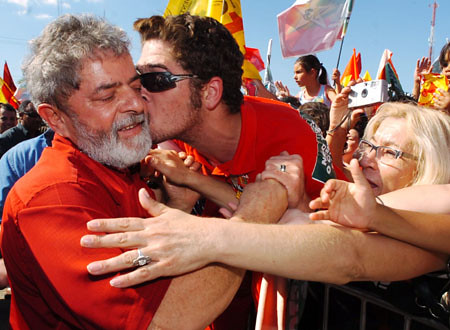

Luiz Inácio ‘Lula’ da Silva, who served as president from 2003 to 2010, won the Brazilian elections against incumbent president Jair Bolsonaro on Oct. 30.
The Brazilian elections were among the most polarized in the country’s history, with the voting gap between the two candidates being less than two per cent.
Bolsonaro has yet to formally concede to da Silva, breaking a tradition in the country. He gave a speech on Nov. 1 saying he would “respect the constitution,” according to The Associated Press.
Laura Levick, a political science professor specialized in Latin America at St. Thomas University, said Bolsonaro’s language is purposefully ambiguous.
“He’s not deliberately stoking the kinds of protests that we’ve been seeing … he’s also not doing very much to defuse them either,” she said.
Levick said Bolsonaro pushed unfounded suspicion onto Brazil’s electronic voting machines before the elections, which reminded her of “Trump’s playbook.”
“Bolsonaro has deliberately undermined confidence in the democratic process,” she said.
To her, the election was extremely polarized because of the gradual deterioration of democracy and the “radically different visions” the two candidates had.
On the one hand, da Silva, a member of Brazil’s Workers Party, promised to expand the social welfare programs that Bolsonaro cut. On the other hand, Bolsonaro is a right-wing conservative leader with a strong hold on Christian values.
Gabriela Guimarães, a third-year Brazilian student at STU, said she preferred da Silva over Bolsonaro, but recognizes that she did not consider him to be a great option.
“I know that at least for the environmental part, things are already starting to get a little better,” she said. “Still, people should be paying attention to all the promises that [da Silva] made and trying to see if he’s actually going to achieve any of them.”
Guimarães is also aware of da Silva’s corruption allegations. He was arrested in 2018, but a court ruled that his arrest was unlawful and nullified his case.
“[da Silva] has been involved in quite a few corruption scandals … [but] anything is better than Bolsonaro at this point,” she said.
Itamar Santos is a first-year Brazilian student who supported Bolsonaro during the elections. Santos said that while his candidate was not elected, he still wishes the best for Brazil.
Santos said he opposes the pro-Bolsonaro protests happening in the south of the country.
“They should just respect that they lost the elections and move on,” said Santos.
Both Guimarães and Santos said Canadians should care about what happens in Brazil in the following presidential term, as it is one of the largest countries in the region.
“I feel like people don’t realize how important those elections are,” said Guimarães. “It is going to define how we’re going to be handling the climate crisis from that one. Everybody should be paying attention to that.”
